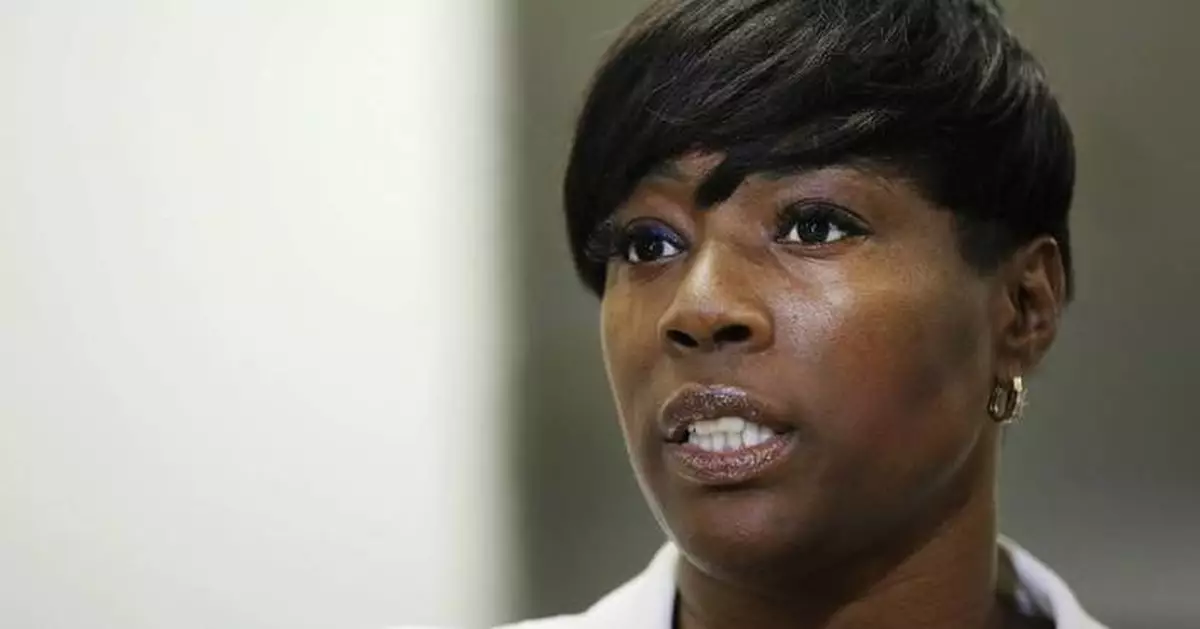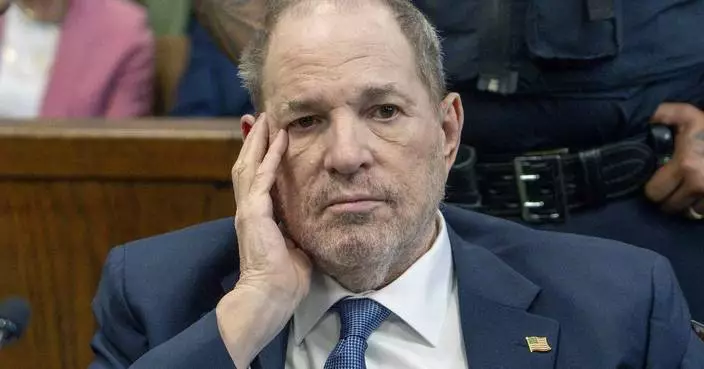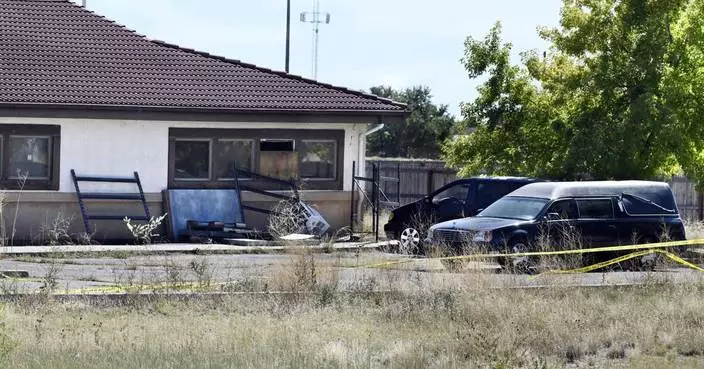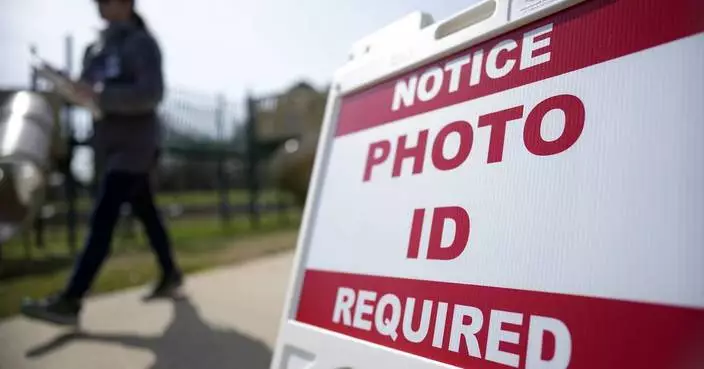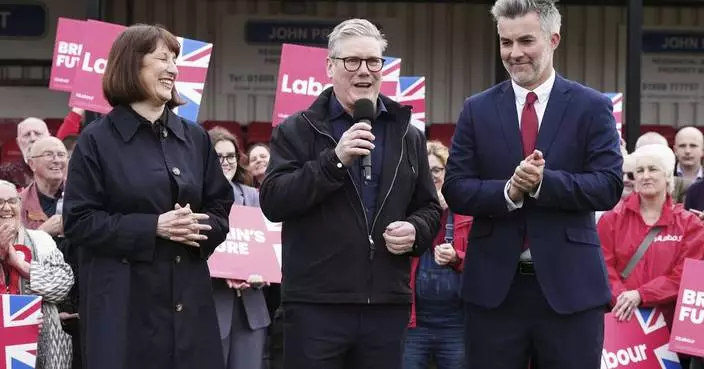A Texas appeals court has overturned a Fort Worth woman’s voter fraud conviction and five-year prison term for casting an illegal provisional ballot.
Crystal Mason did not know that being on probation for a previous felony conviction left her ineligible to vote in 2016, the Second District Court of Appeals in Fort Worth ruled on Thursday.
Appearing near tears at times, Mason said during a Friday news conference that it has been a long seven years since the voting charge. “I’ve been out for six years on an appeal bond, one foot in one foot out, not knowing if I was going back to prison,” Mason said.
“When I got the news ... I was just overwhelmed in joy, it’s been a long journey,” Mason said. “I cried and hollered when I got the news."
Prosecutors maintained that Mason read and signed an affidavit accompanying the provisional ballot affirming that she had “fully completed” her sentence if convicted of a felony.
Justice Wade Birdwell wrote that having read these words on the affidavit didn't prove Mason knowingly cast the provisional ballot illegally.
"Even if she had read them, they are not sufficient ... to prove beyond a reasonable doubt that she actually knew that being on supervised release after having served her entire federal sentence of incarceration made her ineligible to vote by casting a provisional ballot,” the decision said.
Thomas Buser-Clancy, an attorney for the American Civil Liberties Union of Texas, called the ruling “a victory for democracy.”
“Mrs. Mason never should have been prosecuted for what was at worst an innocent misunderstanding,” said Buser-Clancy. He noted that the ballot wasn't counted because she was not a registered voter, and said the case should have ended there.
Mason, a former tax preparer, had been convicted in 2012 on charges related to inflating refunds for clients and served nearly three years of a five-year sentence in prison. Then she was placed on a three-year term of supervised release and had to pay $4.2 million in restitution, according to court documents.
Because of the initial conviction, Mason was returned to federal prison for 10 months to complete the original sentence and given two more years of supervised probation.
The Texas Court of Criminal Appeals previously ordered the court to review whether there was sufficient evidence to convict Mason, ruling that Texas election law requires that individuals know they are ineligible to vote to be convicted of illegal voting.
Buser-Clancy said the state could ask the Court of Criminal Appeals to review the case, but hopes prosecutors will accept the ruling.
Prosecutors did not immediately return a phone call for comment Friday.
Kim Cole, an attorney for Mason, called the prosecution malicious and politically motivated.
“The state’s prosecution specifically stated that they wanted to ‘send a message’ to voters. They deliberately put Crystal through over six years of pure hell,” Cole said in the statement.
Mason’s long sentence made both state Republican and Democratic lawmakers uneasy. In 2021, after passing a new voting law measure over Democrats’ objections, the GOP-controlled state House approved a resolution stating that “a person should not be criminally incarcerated for making an innocent mistake.”
Critics of the state’s voting laws contend that Texas has targeted Black and Latino voters who have tended to vote for Democrats so that Republicans can stay in power.
The Sentencing Project, which advocates for reducing punishment and expanding voting rights of felons nationwide, says Texas leads the nation by disenfranchising 450,000 citizens, or 2.5% of the state’s voting age population, about two-thirds of them Black or Latino.
Texas Legislative Black Caucus Chairman Rep. Ron Reynolds said Mason’s case shows the systemic challenges marginalized voters face as they try to cast ballots.
“While her vindication is a step in the right direction, it highlights the urgent need for comprehensive electoral reform to ensure equitable access to the ballot box for all citizens,” Reynolds' statement said.
Texas is among dozens of states that prevent felons from voting even after they leave prison, while in 22 other states, felons can vote as soon as they’re out of prison, and two states -- Vermont and Maine — allow felons to vote while still incarcerated, according to the ACLU.
Attorney Alison Grinter Allen said she doesn’t know how many Texas citizens are ineligible because they are on parole or still owing fines, but she said the state's laws confuse people.
“A great number of people on probation in Texas are on pre-conviction probation, and those folks are all eligible to vote, "Allen said. "So a lot of people are swept into believing they can’t vote because they’re on a kind of probation that is not disqualifying.”
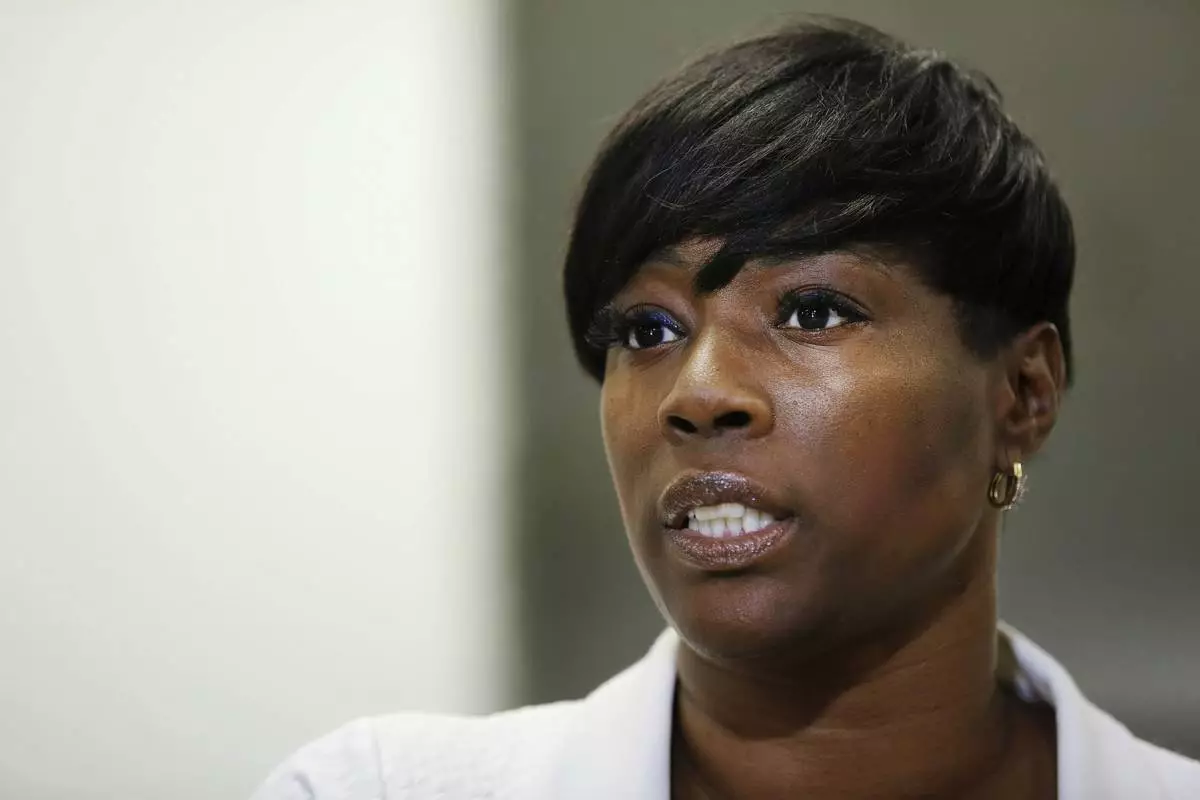
FILE - In this April 17, 2018, photo, Crystal Mason speaks to the media in downtown Dallas. A Texas appeals court has overturned Mason's voter fraud conviction and five-year sentence for casting an illegal provisional ballot. Mason did not know that being on probation for a previous felony conviction left her ineligible to vote in 2016, the Second District Court of Appeals in Fort Worth ruled on Thursday, March 28, 2024. (Andy Jacobsohn/The Dallas Morning News via AP, File)
WASHINGTON (AP) — The Biden administration plans to impose major new tariffs on electric vehicles, semiconductors, solar equipment and medical supplies imported from China, according to a U.S. official and another person familiar with the plan.
Tariffs on electric vehicles, in particular, could quadruple — from the existing 25% to 100%. The plan was described by the people on condition of anonymity because they were not authorized to provide details ahead of a formal announcement.
The tariffs, expected to be announced Tuesday, come as officials across the Democratic administration have expressed frustration over China's manufacturing “overcapacity” of EVs and other products that they say pose a threat to U.S. jobs and national security.
Industrialized nations including the United States and its European allies fear a wave of low-priced Chinese exports will overwhelm domestic manufacturing. On the U.S. side, there is particular concern that China’s green energy products will undermine massive climate-friendly investments made through the Democrats’ Inflation Reduction Act that President Joe Biden signed into law in August 2022.
The additional tariffs also carry some political heft going into the November presidential election. Both Biden and his presumptive Republican challenger, former President Donald Trump, have told voters that they'll be tough on China, the world's second largest economy after the United States and an emerging geopolitical rival.
Biden has defined his policy as “competition with China, not conflict.” He has embraced an industrial strategy that has used government financial support to pull in private investment in new factories and advanced technology, while limiting the selling of computer chips and other equipment to China.
Trump has floated the idea of levying massive tariffs against China in order to reduce the U.S. trade deficit with that country. He has repeatedly claimed that Biden's support for EVs would ultimately cause American factory jobs to go to China.
Tuesday's announcement is expected to keep in place some tariffs that were imposed during Trump's administration, covering about $360 billion in Chinese goods. The new tax on imports would add products such as Chinese syringes and solar equipment.
There is the risk that tariffs could lead to a broader trade conflict between the two countries as they respond to each other's moves. China is seeking to create a technological edge and move up the economic chain.
There are some indications that China is cooling its production of lithium-ion batteries used in EVs, cell phones and other consumer electronics at a time when it is facing increasing criticism from the West.
On Wednesday, China’s Ministry of Industry and Information Technology issued a draft rule aimed at “strengthening the management of the lithium-ion battery industry and promoting the sector’s high-quality growth.”
The draft, which was posted on the ministry’s website for public input, says companies should be striving for better technological innovation, higher quality and lower costs, rather than expanding existing capacity.
Lithium battery plants built in restricted farmlands or industrial zones should be shut down, the draft says.
U.S. Trade Representative Katherine Tai is conducting a review of the Trump-era tariffs, and Republican lawmakers including House Ways and Means Committee Chair Jason Smith and Trade Subcommittee Chair Adrian Smith are urging a “swift conclusion” to the probe.
“Continued inaction on the four year review poses serious risks for U.S. farmers, manufacturers, innovators, small businesses and workers," they wrote in a letter to Tai this week.
Meanwhile, Ohio Democratic Senator Sherrod Brown said in a tweet on Friday that “Tariffs are not enough. We need to ban Chinese EVs from the US. Period.”
The Biden administration has also said it will investigate Chinese-made “smart cars” that can gather sensitive information about Americans driving them. The Commerce Department in February issued a notice of a proposed rulemaking that launches an investigation into national security risks posed by “connected vehicles” from China and other countries considered hostile to the United States.
There currently are very few EVs from China in the U.S., but officials worry that low-priced models could soon start flooding the U.S. market, even with a 25% tariff.
A car model launched last year by Chinese automaker BYD sells for around $12,000 in China. The car’s craftsmanship rivals U.S.-made EVs that cost three or four times as much — and is stoking fear in the U.S. industry.
The Alliance for American Manufacturing — an alliance of businesses and the U.S. Steelworkers union — released a report in February that says the introduction of inexpensive Chinese autos to the American market “could end up being an extinction-level event for the U.S. auto sector.” The U.S. auto sector accounts for 3% of America’s GDP, according to the report.
Treasury Secretary Janet Yellen, who traveled to Guangzhou and Beijing in early April, cited the manufacturing of electric vehicles and their batteries as well as solar energy equipment — sectors that the U.S. administration is trying to promote domestically — as areas where Chinese government subsidies have driven rapid expansion of production.
“China is now simply too large for the rest of the world to absorb this enormous capacity. Actions taken by the PRC today can shift world prices,” she said during a speech delivered in Beijing in April, using the acronym for China’s official name, the People’s Republic of China.
“And when the global market is flooded by artificially cheap Chinese products, the viability of American and other foreign firms is put into question.”
The plan for new tariffs was reported earlier by Bloomberg News and The Wall Street Journal.
—
Associated Press reporter Matthew Daly contributed to this report.

FILE - A worker checks solar panels at a factory in Jiujiang in central China's Jiangxi province on March 16, 2018. The Biden administration is planning to announce new tariffs on electric vehicles, semiconductors, solar equipment and medical supplies imported from China. (Chinatopix via AP)

President Joe Biden boards as departs on Marine One at Marina Green parking lot with the Golden Gate Bridge behind, Friday, May 10, 2024, in San Francisco. (AP Photo/Alex Brandon)



